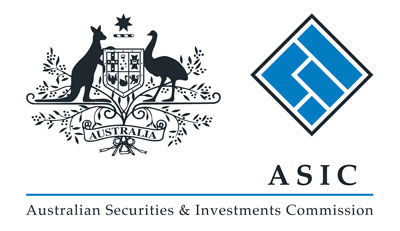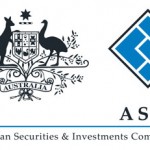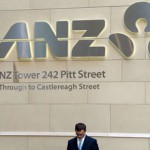ANZ, Westpac admit breaches in forex trading

ANZ and Westpac have followed rivals and yielded to the corporate regulator’s investigation into banks’ foreign exchange businesses, agreeing to oversight and changes after traders shared confidential client information and traded to benefit themselves.
A week after the banks’ chief executives appeared before parliamentary hearings, The Australian Securities & Investments Commission yesterday said it accepted “enforceable undertakings” from Westpac and ANZ for failures in their foreign exchange businesses between January 2008 and June 2013.
“Both banks failed to ensure that their systems and controls were adequate to address risks relating to instances of inappropriate conduct identified by ASIC,” the watchdog said.
The undertakings include ASIC appointing an independent expert to oversee changes to systems, controls, training, guidance and framework for monitoring and supervising traders, plus senior executives reporting to the regulator for three years.
The banks will also make a “community benefit payment” of $3 million to Financial Literacy Australia, a not-for-profit organisation.
The action follows similar wrongdoing by the Commonwealth Bank and National Australia Bank during the same period across their so-called wholesale spot foreign exchange businesses, which was aired by ASIC in December and also resulted in undertakings.
It adds to an array of alleged and accepted misconduct by the big banks across wealth management, retail banking and their institutional arms, including allegedly rigging one of Australia’s key financial interest rate benchmarks, a dispute headed for court.
At the hearings last week, Labor MPs used the various scandals to reiterate their calls for a royal commission to get to fix alleged systemic problems and rebuild community trust.
While conceding past failings, the banks said a royal commission was not needed because they were already addressing issues, they were not systemic and foreign investors’ confidence in the industry would be dented.
In the massive global foreign exchange market where daily turnover averages $US5.3 trillion ($7 trillion), banks’ spot businesses facilitate for clients — such as asset managers and other institutions — buying and selling currencies via contracts at agreed exchange rates.
Similarly to the CBA and NAB transgressions, ASIC said Westpac traders disclosed confidential details of pending client orders to external parties in the spot foreign exchange market, including by using “code names”.
They also inappropriately used confidential information surrounding so-called “fix orders”, foreign exchange agreements the bank entered into with clients referenced to a key benchmark rate in London set over the course of one minute just before, and after, 4pm each day.
“On at least one occasion, a Westpac employee inappropriately disclosed confidential Westpac fix order information to an external party to inform their joint personal account trading strategy,” ASIC said.
ASIC said ANZ’s traders also disclosed confidential details of pending customer orders to external parties including through codenames.
A former ANZ spot foreign exchange trader also exchanged with an external participant in the market confidential and potentially material information about other institutions’ customer flow or positions at the WM/R London 4pm fix “which was potentially inconsistent with a proper approach to market making or hedging”.
“Following the receipt of such information, the ANZ trader acquired a proprietary position in a currency prior to the WM/R London 4pm fix,” ASIC said.
ANZ chief risk officer Nigel Williams said the bank had co-operated with ASIC, had taken responsibility and “we apologise”.
“There has been a cultural and compliance step change in our markets business since 2013,” Mr Williams said.
“While we are always looking at ways to strengthen our compliance environment, there have been major improvements to compliance, training and monitoring systems in recent years which will go a long way toward ensuring this does not happen again.”
Westpac institutional banking chief Lyn Cobley said: “We continue to enhance our policies and controls across the spot foreign exchange business and we look forward to continuing this process as we fulfil our commitments set out in the enforceable undertaking.”
The undertakings are separate from ASIC’s case against NAB, ANZ and Westpac for allegedly rigging the bank bill swap rate, or BBSW, one of the nation’s key financial benchmarks that feeds into the pricing of billions of dollars of securities and loans.
However, the foreign exchange transgressions yesterday also occurred in the banks’ large institutional arms that have come under fire following ASIC’s release of unflattering conversations between traders accused of trying to manipulate the BBSW for the banks’ gain.
“The foreign exchange market is a systemically important market that depends on all participants acting with integrity and fairness,” ASIC commissioner Cathie Armour said.
In another separate case in relation to attempted rigging of the Malaysian ringgit, ANZ and Macquarie Bank agreed with the competition regulator to $15m of fines.
Source: The Australian


























